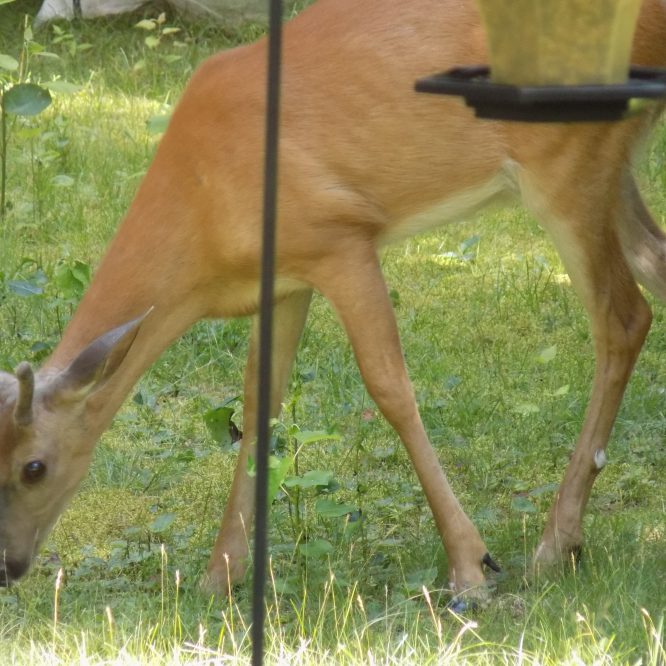As we plan out our gardens for the year we inevitably come to pest control. This week I want to talk about large pests such as squirrels, rabbits, birds and deer. So before I get into the actual planting of seeds lets discuss pest control.
Last week we talked about keeping squirrels out of your container gardens. For a refresher click Here
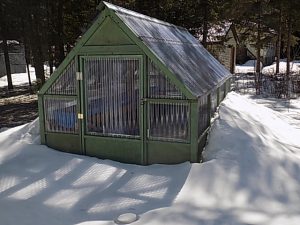
As you can see from the picture, I won’t be getting out to my green house any time soon to start my seeds (it’s March in northern Ontario), so I figured it is good to get this part of the planning over with now while we are waiting for that really nice day that we can actually get some dirt under our nails!
The reason I want to discuss this first is because you need to take these measures before you start planting anything. Start by assessing your garden space. I have a few raised beds and some open soil areas where I will be planting. If your garden is new to you you will have a little trial and error this season. If you haven’t yet dug your garden, you can put stakes around the perimeter of where you will dig. You can attach string to the stakes to map out exactly where to dig. Pick up some books on gardening for beginners if you’re just starting out. Make sure the books you buy are for your country and hardiness zone.
To determine your Plant Hardiness Zone in the U.S. click here
For my fellow Canadians click here
After assessing your garden and perimeter you can move on to wildlife pest control. We have deer and rabbits and pine squirrels and birds in our yard all the time. These adorable creatures will eat your vegetables, flower bulbs, herbs, seeds and anything else they think is yummy. I have read through a bunch of websites about how to keep deer and the like out of the garden and I have been laughing all day at some of the suggestions. (Including peeing in the garden!) Some people suggest that deer won’t eat certain vegetables so only plant those. While I am sure this works for a bit, I know once their favourite veggies have been eaten, they will move on and eat the rest of your garden. Also, if a deer wants in; it will find a way to get in. So I have ruled out all the wonky ways to keep deer out of the garden and come to the conclusion that you have to build a tall fence to deter deer. Unless you build an 8 foot stone wall, or a cage around the garden, you can’t 100% keep deer out, but a tall fence can make a huge difference.
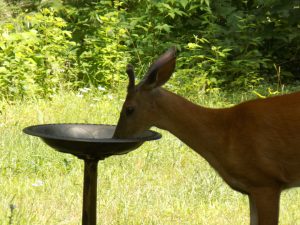
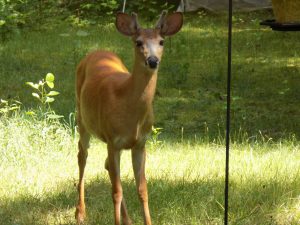
Fencing can be expensive. If you need to put up a fence it is best to set that money aside now otherwise you can spend all of your budget on nice vegetables and plants and lose them all for want of a fence. You may not be able to plant as much the first year because you had to build a fence, but in the long run, at least you will be eating your own crops instead of feeding the deer.
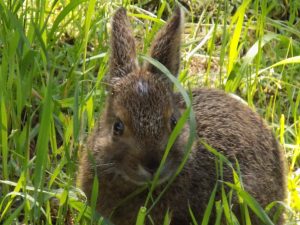
For rabbits (if you don’t have a deer problem), short fences are available and they will keep rabbits out. They are more like borders than fences. The holes need to be really small so they don’t squeeze through. Rabbits are especially annoying because they love the tender tops of your beets and carrots. Once they munch the tops, the veggies won’t grow as they can no longer get nutrients from the sun. I have used border fences from the dollar store that have worked quite well.
Squirrels are impossible to keep out, but you can deter them. You can keep them from digging in your pots and flower beds using garden cloth and stones, but your vegetable patch is different. They can climb right in and stuff their little cheeks any time they want. I laugh because they take their spoils from my garden and bury them in my yard. Come on squirrels! Show a little respect! As we previously discussed, you can use cayenne pepper etc. to deter squirrels, but only a cage around the veg garden will keep them out 100% You can get creative dealing with squirrels: shooting them with a water gun is kind of fun! I have also heard that if you supply nuts and other food squirrels in opposite places in your yard they tend to leave the vegetable patch alone. I will be trying this this year and I will let you know how it goes.
UPDATE: This actually helped keep the squirrels from wrecking the veggie patch, and allowed us to enjoy watching the squirrels.
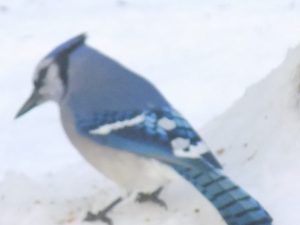
Birds are funny. They will eat your seeds when you plant them in the ground. To avoid this, keep the soil really moist at all times. Also, you can do what I do and start your seeds indoors until you have seedlings big enough to plant. The only seeds I put directly in the garden are my beet seeds. Buying seed tape for beets keeps the birds from eating the seeds, not to mention makes your beets grow in a very perfect row. Birds are known to go after tomatoes in the summer. However, the reason they go after the tomatoes is not because they like to eat them, but rather because they are thirsty and suck the juice out of the tomato. Putting a bird bath or other type of water feature for birds to drink from will keep them away from your tomatoes. Be sure to clean it and fill it every day. If mosquito’s are an issue, keep the bird bath as far away as possible. Also, you may have noticed from my above picture, your deer will also enjoy drinking from the bird bath!
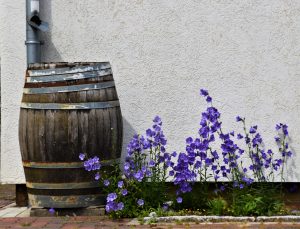 I put lack of rain on my pest list because it is just as devastating. I have a well, and I do not want to exhaust my well by using it to water my garden. If this applies to you, you can also put in rain barrels. Anyone can use rain barrels especially if you have to pay for water. Water bills can get really expensive really fast. Rain barrels have spigots and hoses that you can place right in your garden that will move the water exactly to where you want it, making it one less thing to think about on a daily basis. However, if you are in a drought, there is no choice but to turn on the water if your barrels are dry. I suggest having two (or more) rain barrels depending on the size of your garden to avoid using costly or precious water.
I put lack of rain on my pest list because it is just as devastating. I have a well, and I do not want to exhaust my well by using it to water my garden. If this applies to you, you can also put in rain barrels. Anyone can use rain barrels especially if you have to pay for water. Water bills can get really expensive really fast. Rain barrels have spigots and hoses that you can place right in your garden that will move the water exactly to where you want it, making it one less thing to think about on a daily basis. However, if you are in a drought, there is no choice but to turn on the water if your barrels are dry. I suggest having two (or more) rain barrels depending on the size of your garden to avoid using costly or precious water.
Once you have an idea of your not so fun costs you can then start planning the actual garden. If you’re a beginner, get to the library and read those books! If you are experienced, go through what you have in terms of supplies and tools and see what needs repaired, purchased etc. You can work on these things while waiting for planting season.
By the way I am extremely jealous of those of you who can garden right now! Think of me when you’re out playing in the dirt or admiring your spring flowers!
Many blessings,
Lady Black
